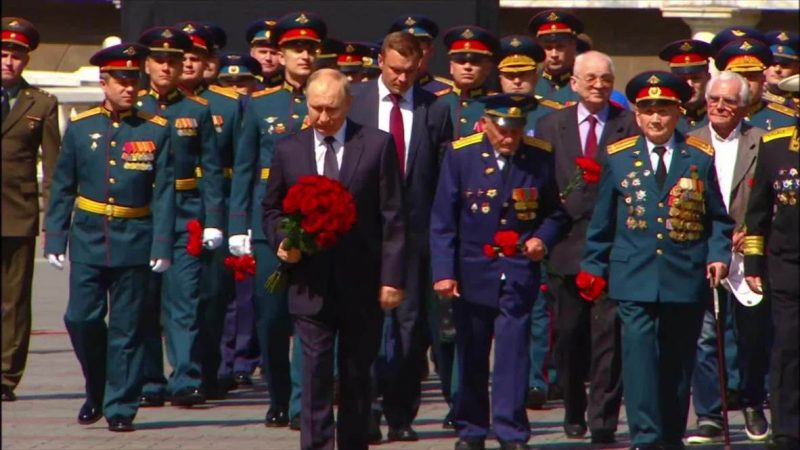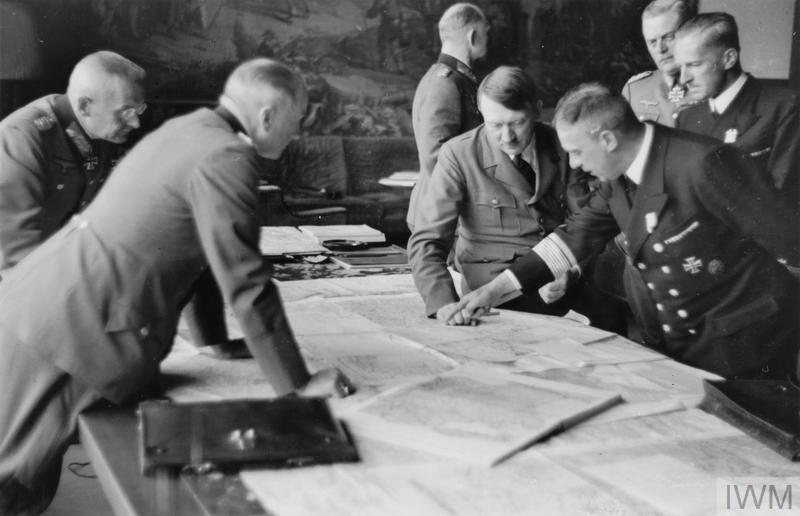The fascist shadow from the longest night of Operation Barbarossa still haunts Europe. That is incredibly vexing.

This week marks 8o years since the Nazi invasion of the Soviet Union.
What ensued was a long night of horror during which the Second World War escalated to obliterate tens of millions of lives.
Operation Barbarossa was launched on June 22, 1944, within hours of the summer solstice – the longest day annually in the Northern Hemisphere.
The invasion comprised 3.3 million troops of the Nazi Reich deployed across a frontline of nearly 3,000 kilometers.
It is reckoned to be the largest invasion force in military history.
Nazi Germany was already at war with Britain and France after conquering Poland in September 1939.
But what followed in the offensive against the Soviet Union was the Final Solution of Nazi genocide going full throttle.
Among the regular Wehrmacht troops were SS death squads whose infernal task assigned by the Nazi leadership was the extermination of Jews, Slavs and Bolsheviks.
Over the next two and half years before the Red Army repelled and eventually defeated Nazi Germany, up to 27 million Soviet citizens would die from violence and deprivation.
Many of the victims were killed in large-scale massacres or from being forced into extermination camps, most of which were assembled on Polish territory.
The most notorious were Auschwitz, Treblinka, Belzec, Chelmno, Sobibor, and Majdanek, where gas chambers and crematoria disposed of millions of lives.
At a commemoration ceremony in Berlin, German President Frank-Walter Steinmeier spoke solemnly about the Nazi war launched on the Soviet Union, describing its horror as “murderous barbarism”.
“From the first day, the German campaign was driven by hatred, by antisemitism and anti-Bolshevism, by racist madness against the Slavic and Asian peoples of the Soviet Union,” Steinmeier said.
“Those who waged this war killed in every possible way, with unprecedented brutality and cruelty,” he added. “It was German barbarism, it cost millions of lives and devastated the continent.”
An important correction to those remarks is that it wasn’t “German barbarism” alone.
The Nazi murder machine was aided and abetted by other European forces, including ranks of collaborators from Ukraine, Poland, Romania, Hungary, among others, as well as from the Baltic States of Estonia, Latvia and Lithuania.
It was fascist barbarism.
Germany’s Steinmeier went on to comment: “Only those who learn to read the traces of the past in the present will be able to contribute to a future that avoids wars, rejects tyranny, and enables peaceful coexistence in freedom.”
And that is what is disconcerting.
Many politicians across Europe and in the United States seem incapable of reading “the traces of the past in the present” to avoid wars and enable peaceful coexistence.
The relentless expansion of NATO forces around Russia’s borders continues unabated and with twisted rationalization.
As Russian President Vladimir Putin pointed out in an article published in German media this week to commemorate the 80th anniversary of Operation Barbarossa, the reckless expansion of NATO is directly threatening the security of Europe.

At its annual summit held last week in Brussels, the US-led NATO alliance repeatedly vilified Russia for “threatening Europe’s security”.
The accusations turn reality on its head.
It is NATO’s offensive posture towards Russia that is jeopardizing strategic stability.
As Putin noted, when the Cold War between the West and the Soviet Union ended three decades ago, there was a missed opportunity for Europe to evolve security structures with Russia’s partnership.
Under the direction of the United States, NATO became a recruiting agency against Moscow.
Confrontation instead of cooperation. Lamentably, there is little sign of that dynamic changing, notwithstanding appeals by Russia for more reasoned relations.
The 30-member alliance now includes European states whose politicians express rabid Russophobia.
Under the malign influence of ultra-nationalist Polish and Baltic parties, there has come disturbing revisionism concerning the Second World War, or the Great Patriotic War as it is known in Russia, whereby the crimes of Nazi Germany are equated, contemptibly, with the Soviet Union.

The polarization of Europe has been a deliberate policy under NATO which has resulted in extreme tensions between the US and its allies, on the one hand, and Russia on the other.
The designation of the Ukraine and Georgia, both former Soviet republics, for future membership of NATO is a calculated provocation to Russia.
That move potentially could see American ballistic missiles installed on Russia’s border by a military alliance that defines Russia as a threat to Europe.
At the recent commemorative event presided over by German President Steinmeier to remind the world of the worst horror in modern history, it should be deplored that the Ukrainian ambassador refused to attend.
The event was held at the German-Russian Museum in Berlin.
It was the site where Nazi Germany signed an unconditional surrender on May 8, 1945, before representatives of the Soviet Union, the United States and Britain. (The date was May 9 in Moscow time.)
Ukrainian ambassador Andrij Melnyk rejected the invitation because he said the venue was “an affront” and too much focused on Russia’s suffering.
This is while the NATO-backed Ukrainian forces under the control of a regime in Kiev that glorifies Nazi collaborators are shelling the ethnic Russian people in Eastern Ukraine in a war that has been going on for over seven years.
The Kiev regime was brought to power by an American and European-backed coup d’état against an elected president in February 2014.
The regime is emboldened in its anti-Russia aggression by financial and military support from Washington and Brussels.
It is indeed disturbing that even when leaders like German President Frank-Walter Steinmeier appear to talk solemnly and wisely about the horror of war, there is still an astounding lack of awareness about the danger of war as evidenced by the policies of Washington and its NATO allies.
Is it really lack of awareness or something more cynical?
The fascist shadow from the longest night of Operation Barbarossa still haunts Europe.
That is incredibly vexing.
***
By Finian CUNNINGHAM, Former editor and writer for major news media organizations. He has written extensively on international affairs, with articles published in several languages
Published by SCF
Republished by The 21st Century
The views expressed in this article are solely those of the author and do not necessarily reflect the opinions of 21cir.
